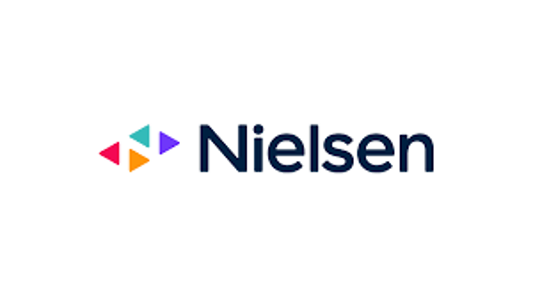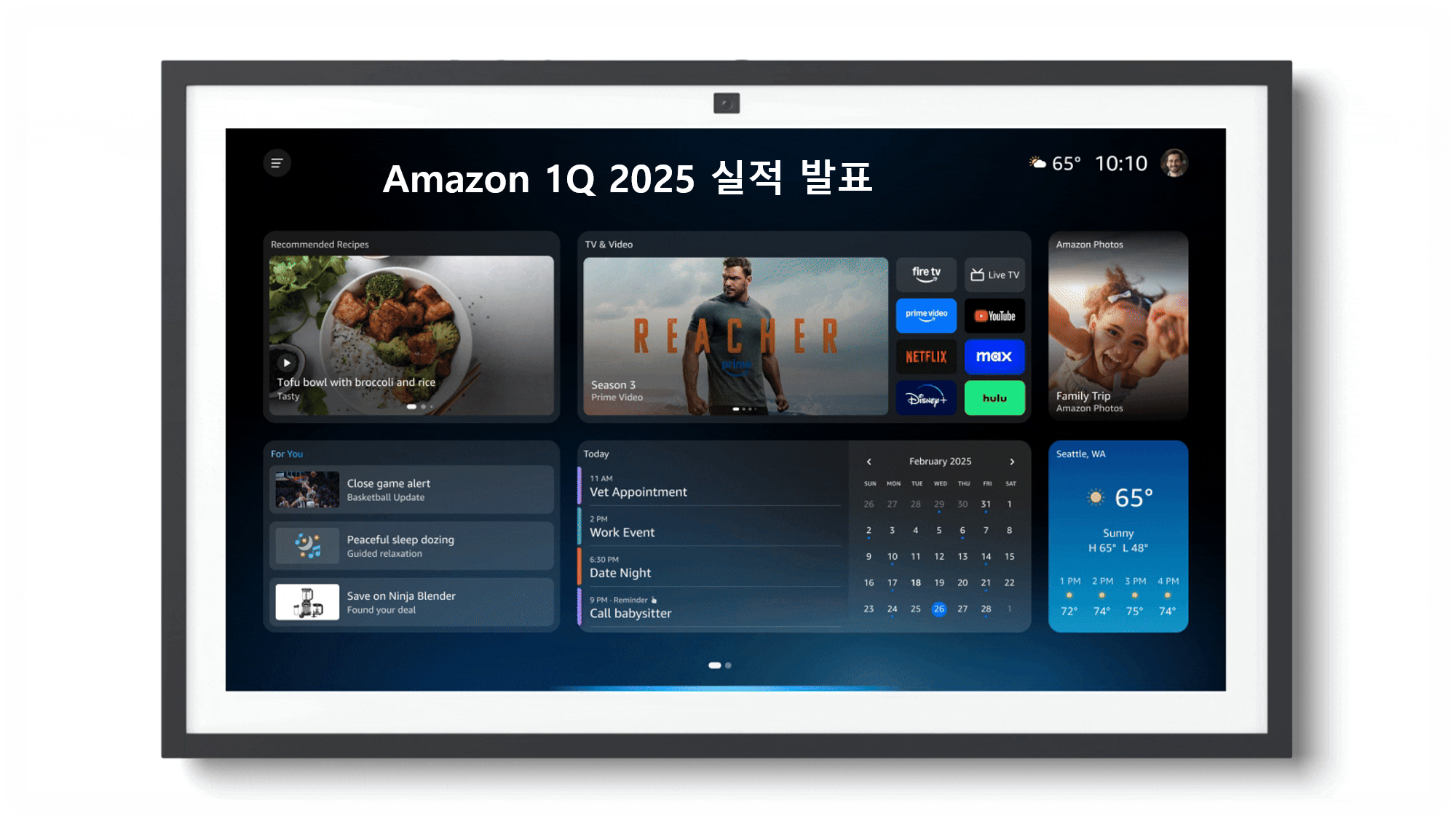Sam seog Ko
(Distinguished Professor, School of AI Convergence, Dongguk University, and former commisioner Korea Communications Commission KCC)
Recently, there has been some interesting news related to the Korean Wave from overseas. One is that Coca Cola, a global beverage company, has released a new product with the Coca Cola name in Korean. It is said to be the first time in the company's 130-year history to sell products globally in a specific national language other than English.
As Korean content such as K-pop, K-dramas and K-beauty have become popular around the world, interest in the Korean language has increased, and more importantly, a 'positive image' has been formed, so the company is actively utilizing it to promote its products.
The other news came from Thailand. In August last year, the newly formed Thai government decided to establish the Thailand Content Agency (THACCA) as an organization dedicated to fostering the country's content industry, using the Korea Creative Content Agency (KOCCA) as a role model.
Prior to this, the Thai government launched the National Soft Power Strategy Committee (NSPSC), chaired by Prime Minister Srettha Thavisin and vice-chaired by Paetongtarn Shinawatra, the youngest daughter of former Prime Minister Thaksin and the next leader of the ruling Pheu Thai Party.

The new Thai government's commitment to strengthening the country's soft power, centered on the content industry, seems sincere, not just a one-off 'political rhetoric'.
In fact, the ruling Thai government has put 'fostering soft power' at the forefront of its agenda. Thai Prime Minister Setta met with President Yoon Seok-yeol in the United States during the UN General Assembly last year and discussed content industry exchanges between Thailand and South Korea at length, and Thai government officials visited KOCCA.

The Thai government's public declaration that it would benchmark Korea's content industry policies to foster its soft power is significant for several reasons.
According to KOCCA's 2018 report, "A Study on New Wave Diffusion Strategy for the Paradigm Shift of the Korean Wave," the Korean Wave is categorized into three types of countries according to the degree of diffusion: generalized diffusion countries, fan-centered diffusion countries, and transitional countries, which are in the middle of generalized diffusion and fan-centered diffusion.

At the time, Japan and China were analyzed as general adoption countries, Indonesia as a transitional country, and the rest of the U.S. and European countries as fan-centered diffusion countries.

Thailand was not included in the 2018 report, but given the government's current policies, it would not be unreasonable to categorize Thailand as a country where the Korean Wave has already "settled" into the general society. In fact, according to various reports, Thailand, the second-largest economy in Southeast Asia after Indonesia, has emerged as a center for Hallyu consumption.
It is the most active consumer of Korean content and lifestyle products, from K-pop and dramas to food, beauty, and fashion. The 2022 Korea Foundation for International Cultural Exchange (KOFICE) survey also found that Thailand has the highest proportion of "enthusiastic users" of Hallyu among the countries surveyed, with the highest level of positive evaluation, expectation, and loyalty to the Korean Wave.

Given Thailand's importance and role in Southeast Asia, including the Indochina Peninsula, these findings have important policy implications not only for the spread of the Korean Wave, but also for global cultural exchange centered on the content industry. It is no exaggeration to say that the Korean Wave, which started with Hallyu 1.0 and developed into Hallyu 3.0, has now entered a new turning point, the era of the 'new Korean wave'. I would like to make a few policy suggestions for the development of the Korean Wave in Thailand and other Southeast Asian countries, as well as for constructive global cultural exchange.
First, the paradigm of the Korean Wave should be shifted from unilateral 'entry' to bilateral or mutual 'exchange'. This means that governments and private companies should shift the paradigm of the Korean Wave from commercialism and aggressive strategies that focus solely on the economic value of the Korean Wave to mutual cultural exchanges that contribute to the social, economic, and cultural development of the Hallyu-consuming countries, so that Korean culture can be enjoyed in the daily lives of people around the world. The 2018 KOCCA report defined and proposed this concept as the 'New Wave'. It was a timely point, but the strategic framework of the Korean Wave, whether government or private, has not changed much since then. I suggest a fundamental shift in the Hallyu paradigm before it's too late.
Second, in terms of the sustainability of the Korean Wave, Japan should go beyond economic and business exchanges such as K-pop, drama, food, and beauty, and activate broader private exchanges and build human networks with Southeast Asian countries. Japanese pop culture has long been localized on a solid foundation built through ODA projects in Southeast Asian countries, and given the recent rise of the Chinese content industry, which is rapidly growing in influence through massive economic investment in Southeast Asia, the foundation of the Korean Wave is still weak. This analysis is supported by a survey of Hallyu users in Southeast Asia, which found that they expect the Hallyu to have a relatively short duration. The "lethal implications" of small signals must be recognized early and responded to quickly.
Third, it is worth noting that the spread of Hallyu in Southeast Asia during the coronavirus pandemic is highly dependent on digital media such as Streaming and social media service. According to a survey, Hallyu users in Southeast Asia mainly use social media to search for information related to Hallyu and consume Hallyu content through streaming services such as Netflix.
In turn, they share their experiences on social media to spread the Korean Wave. As the Korean Wave in Southeast Asia is closely related to the spread of digital media, it is important to keep a close eye on the informationization and digital transformation of Southeast Asian countries. At the same time, exchange and cooperation programs between Korea and Southeast Asian countries should be strengthened in connection with the spread of the Korean Wave. It should not be overlooked that the spread of the Korean Wave in Southeast Asia is not only a cultural phenomenon but also a 'technological phenomenon'. It is commendable that the Korean government has recently been supporting e-government in Southeast Asian countries and expanding various cooperation projects related to Internet information security, especially through the Korea Internet and Security Agency (KISA).

Fourth, we need to better manage unnecessary risk factors that hinder the spread of the Korean Wave and revitalize the role of the government's control tower. Hallyu is a cultural phenomenon, so we should emphasize the strengths of our own culture, but respect the culture of the Hallyu consumer countries. Even if it's unintentional, you should never denigrate the culture of another country or disrespect the sentiments of local users. For example, the unsavory controversies that often arise around cultural codes such as religion in entertainment content are self-inflicted. In addition, the recent diplomatic friction between the two countries over the screening process for tourists from certain countries is an example of the government's actions that are detrimental to the spread of the Korean Wave. The screening criteria were unclear, and there was no sensitivity or consideration for the people of the other country. Cultural exchanges between countries are strengthened through emotional connections, and the bonds formed on this basis become the public opinion of a society and exert great influence on politics, economy, and society as a whole.
In February 2020, the government launched the Hallyu Cooperation Committee to comprehensively manage Hallyu promotion policies by ministries and maximize policy effectiveness.
The committee is chaired by the Minister of Culture, Sports and Tourism, the ministry in charge of Hallyu, and includes vice ministers from 13 ministries, including the Ministry of Foreign Affairs, and heads of 12 public organizations, including the head of KOCCA. The main purpose of the Hallyu Cooperation Committee was to regularly check the progress of Hallyu promotion policies and share the direction of the government's response.
However, it is not easy to confirm the activities of the Hallyu Cooperation Committee since President Yoon Suk Yeol took office.
I think it has been weak, or if it has been active, it has not been properly publicized. It is common for the new government to put the work of the previous government on the back burner, but good policies and institutions should be inherited and developed. This is especially true for policies related to the Korean Wave. Cultural exchange between countries, including Hallyu, has nothing to do with the identity of any particular government, but rather with South Korea's pride and global standing. That's why we need a bolder approach. As the Korean Wave spreads, we can expect the Hallyu Cooperation Committee to be revitalized.

동남아시아 한류, 패러다임을 전환할 때다!
고삼석(동국대 AI융합대학 석좌교수·전 방통위 상임위원)
최근 한류와 관련된 몇 가지 흥미로운 소식이 해외로부터 들려왔다. 하나는 세계적인 음료회사 코카콜라(Coca Cola)가 한글로 코카콜라를 표기한 새 상품을 내놨다는 것이다. 영어가 아닌 특정 국가 언어가 사용된 제품을 전 세계적으로 판매하는 것은 130년 코카콜라 역사상 처음 있는 일이라고 한다. K-pop, K-drama 등 우리나라 콘텐츠가 전 세계적으로 인기를 끌면서 한글에 대한 관심이 높아지고, 무엇보다 ‘긍정적 이미지’가 형성되자 이를 제품 홍보에 적극 활용하고 있는 것이다.
다른 뉴스는 태국에서 전해졌다. 지난해 8월 새로 출범한 태국 정부가 한국콘텐츠진흥원(KOCCA)을 롤모델로 삼아 자국의 콘텐츠 산업 육성을 전담할 기구로 ‘태국콘텐츠진흥원(THACCA)’을 설립하기로 했다는 것이다. 이에 앞서 태국 정부는 세타 타위신(Srettha Thavisin) 총리를 위원장으로, 탁신 전 총리의 막내딸이자 집권당 프아타이당(Pheu Thai Party)의 차기 대표로 거론되는 패통탄 친나왓(Paetongtarn Shinawatra)을 부위원장으로 하는 국가소프트파워 전략위원회(NSPSC)를 출범시켰다.
새 태국 정부가 콘텐츠 산업을 중심으로 자국의 소프트파워를 강화하겠다는 것은 일회성 ‘정치적 레토릭’이 아니라 진심으로 느껴진다. 실제로 태국 정부 여당은 ‘소프트파워 육성’을 국정과제의 전면에 내세우고 있다. 세타 태국 총리는 지난해 유엔총회 기간 동안 미국에서 윤석열 대통령을 만나 한국과 태국 간 콘텐츠 산업 교류를 정식 의제로 삼아서 심도있게 논의했고, 태국 정부 관계자들은 KOCCA를 직접 방문하기도 했다.
태국 정부가 자국의 소프트 파워 육성을 위해 한국의 콘텐츠 산업 정책을 벤치마킹하겠다고 공개 선언한 것은 여러 가지로 큰 의미를 갖는다.
2018년 KOCCA가 발표한 ‘한류의 패러다임 전환을 위한 신한류 확산 전략 연구’ 보고서에 따르면 한류의 확산 정도에 따라서 ▲사회 일반 정착 국가 ▲팬 중심 확산 국가, 그리고 사회 일반 정착과 팬 중심 확산의 중간 단계의 ▲과도기 국가 등으로 분류하고 있다. 당시만 해도 일본과 중국은 사회 일반 정착 국가로, 인도네시아는 과도기 국가, 나머지 미국과 유럽 국가들은 팬 중심 확산 국가로 분석하였다.
2018년 보고서에서 태국은 조사 대상에 포함되지 않았지만, 이번에 추진되고 있는 태국 정부의 정책들을 고려하면 태국은 이미 한류가 사회 일반에 ‘정착한’ 국가로 분류해도 크게 무리는 없을 것 같다. 실제로 각종 보고서를 보면 동남아시아에서 인도네시아 다음으로 경제 규모가 큰 태국은 한류 소비의 중심 국가로 부상하였다. K팝과 드라마 뿐만 아니라 푸드와 뷰티, 그리고 패션까지 우리나라의 콘텐츠와 라이프 스타일 제품에 대한 소비가 가장 활발한 국가이다. 2022년 한국국제문화교류진흥원(KOFICE) 조사에서도 한류 이용자 중 ‘열성적 이용자’가 조사대상 국가 중에서 가장 높게 나타났고, 한류에 대한 긍정적 평가와 기대, 충성도가 매우 높은 나라로 평가되었다.
이러한 조사 결과는 태국이 인도차이나반도 등 동남아시아에서 차지하는 비중과 역할을 감안하면 한류 확산뿐만 아니라, 콘텐츠 산업 중심의 글로벌 문화교류에 있어서 대단히 중요한 정책적 함의를 갖는다. 한류1.0으로 시작하여 한류3.0으로 발전한 한류가 이제 새로운 전환점, 즉 ‘신한류(new Korean wave) 시대’로 접어들었다고 해도 과언이 아니다. 태국 등 동남아시아 지역 한류의 발전, 더 나아가 건설적인 글로벌 문화교류를 위해 몇 가지 정책 제안을 하고자 한다.
첫째, 한류의 패러다임(paradigm)을 일방 ‘진출’에서 쌍방 혹은 상호 ‘교류’로 전환해야 한다. 정부든, 민간기업이든 한류의 경제적 가치에만 집중하는 상업주의와 현지 진출 일변도의 공세적 전략에서 벗어나 한류 소비국의 사회·경제·문화 발전에 기여하는 상호 문화교류 중심으로, 그래서 세계인의 일상생활 속에서 한국의 문화가 향유되도록 하는 방향으로 한류의 패러다임을 전환하자는 것이다. 2018년 KOCCA 보고서는 이를 ‘신한류’라는 표현으로 개념을 정의하고 제안하였다. 시의적절한 지적이었지만, 정부든 민간이든 한류와 관련된 전략 기조는 그때나 지금이나 크게 달라진 것이 없다. 더 늦기 전에 한류 패러다임을 근본적으로 전환할 것을 제안한다.
둘째, 한류의 지속가능성이라는 측면에서 K-pop, drama, food, beauty 등 경제 및 기업 간 교류를 뛰어넘어 동남아시아 각국과 보다 폭넓은 민간교류를 활성화하고, 인적 네트워크를 구축해야 한다. 일본의 대중문화는 오랜 기간 동남아시아 국가들에 대한 공적개발원조(ODA) 사업 등을 통해 구축된 탄탄한 기반 위에서 현지화를 진행하였다.
또한 최근 동남아시아에 대한 막대한 경제 투자를 통해 영향력을 급속히 키워가고 있는 중국 콘텐츠 산업의 위상을 생각하면 한류의 기반은 여전히 취약하다고 인정하지 않을 수 없다. 동남아시아 한류 이용자들 대상 조사에서 그들이 ‘한류의 지속 기간이 비교적 짧을 것’으로 예상하고 있는 것도 이런 분석을 뒷받침하고 있다. 작은 신호가 발신하는 ‘치명적 의미’를 조기에 포착하고 신속하게 대응을 해야 한다.
셋째, 코로나 팬데믹을 거치면서 나타나는 동남아시아의 한류 확산은 OTT, SNS 등 디지털 미디어에 의존하는 바가 크다는 점을 주목할 필요가 있다. 한 조사결과를 보면 동남아시아 한류 이용자들은 주로 SNS를 통해서 한류와 관련된 정보를 검색하고, 넷플릭스 등 OTT를 통해서 한류 콘텐츠를 이용한다.
그리고 다시 SNS에 자신들이 경험한 한류 관련 소식을 공유하면서 한류를 확산시켜 나가고 있는 것으로 나타났다. 이처럼 동남아시아 지역의 한류는 디지털 미디어의 보급 등과 밀접한 관련이 있는 만큼, 동남아시아 각국의 정보화 및 디지털 전환 상황을 예의주시해야 한다. 동시에 이와 관련된 우리나라와 동남아시아 국가들 간 교류협력 사업도 한류의 확산과 연계하여 더욱 강화해야 한다.
동남아시아 지역에서 한류의 확산은 문화적인 현상이면서 ‘기술적 현상’이기도 하다는 점을 간과해서는 안된다. 최근 한국 정부가 동남아시아 국가들의 정부 정보화사업(e-government)을 지원하고, 특히 인터넷진흥원(KISA)를 중심으로 인터넷 정보 보안 관련 각종 협력사업을 확대하고 있는 것은 높게 평가할만하다.
넷째, 한류 확산을 가로막는 불필요한 리스크 요인을 잘 관리하고, 이를 위해 한류 관련 정부 내 콘트롤타 워의 역할을 활성화시켜야 한다. 한류는 문화적 현상이다.
따라서 우리 문화가 갖고 있는 강점을 부각시키되, 한류 소비국의 문화를 존중해야 한다. 의도하지 않았다고 하더라도 상대국 문화를 폄하하거나, 현지 이용자들의 정서를 무시하는 행위는 절대 해서는 안된다.
일례로 예능 콘텐츠에서 종교 등 문화코드와 관련하여 종종 발생하는 불미스러운 논쟁은 자해행위에 가깝다. 또한 최근 특정 국가 관광객들의 국내 입국심사과정에서 발생한 양국 간 외교적 마찰은 정부가 나서서 한류 확산에 찬물을 끼얹는 행위이다. 심사기준도 불분명했고, 상대국 국민들에 대한 세심만 배려도 찾아볼 수 없었다. 국가 간 문화교류는 정서적 교감을 통해 공고화되고, 이를 기반으로 형성된 유대감은 한 사회의 여론이 되어 정치·경제·사회 전반에 걸쳐서 큰 영향력을 발휘하게 된다.
지난 2020년 2월 정부는 부처별 한류 진흥정책을 종합적으로 관리하고 정책 효과를 극대화하기 위해 ‘한류협력위원회’를 출범시켰다. 한류 주무 부처인 문화관광부 장관을 위원장으로 외교부 등 13개 부처 차관과 KOCCA 원장 등 12개 공공기관의 기관장을 위원으로 참여시켰다.
한류협력위원회는 한류 진흥정책의 추진 경과를 정기적으로 점검하고, 범정부 차원의 대응 방향을 공유하는 것을 주 목적으로 하였다.
그러나 윤석열 정부 출범 이후 한류협력위원회의 활동 내용을 확인하기는 쉽지 않다. 활동이 미약했거나 활동했더라도 제대로 알리지 않았을 것으로 생각한다. 과거 정부에서 했던 사업을 새 정부에서 후순위로 미뤄두는 일은 다반사이지만, 좋은 정책과 제도는 계승하고 발전시켜야 한다. 한류 관련된 정책이 특히 그렇다. 한류를 비롯한 국가 간 문화교류는 특정 정부의 정체성과 무관한 대한민국의 자부심 및 글로벌 위상과 관련된 일이다. 보다 대범한 접근이 필요한 이유다. 한류의 확산과 함께 한류협력위원회의 활성화도 기대해 본다.







![[프리미엄 리포트] 미국 케이블TV 2025, 변화와 미래 전략](https://storage.googleapis.com/cdn.media.bluedot.so/bluedot.directmedialab/2025/05/vj931j_202505270106.png)







